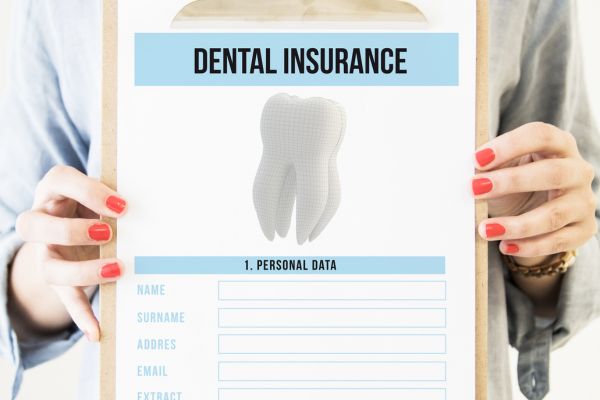When you think about your home, it’s likely more than just a building with walls and a roof. It’s your sanctuary, where you feel safe and secure, filled with memories and personal belongings. But what would happen if disaster struck? Fire, theft, storms, or unexpected accidents could put your home and possessions at risk. That’s where homeowners insurance steps in, offering a safety net for the things you cherish most.
What Is Homeowners Insurance?
Homeowners insurance is a policy that provides financial protection for homeowners against damage or loss to their home and belongings. It covers various risks, like fire, theft, and certain natural disasters, and it often includes liability coverage if someone gets injured on your property.
Why Is Homeowners Insurance Important?
Here’s why homeowners insurance isn’t just a luxury—it’s a necessity:
- Financial Security: Without it, you’d be responsible for covering repair or replacement costs on your own.
- Lender Requirement: Most mortgage lenders require homeowners insurance to approve a loan.
- Liability Coverage: If a guest slips and falls at your home, this insurance covers medical expenses and legal fees.
- Peace of Mind: Knowing your home is protected allows you to focus on enjoying it.
Types of Homeowners Insurance Coverage
Homeowners insurance typically includes a variety of coverages that address different risks. Here’s a breakdown:
- Dwelling Coverage: Protects the structure of your home, including walls, roof, and attached structures like a garage.
- Personal Property Coverage: Covers your personal belongings, such as furniture, electronics, and clothing, if damaged or stolen.
- Liability Protection: Offers coverage if someone is injured on your property or if you accidentally damage someone else’s property.
- Additional Living Expenses (ALE): Pays for temporary housing if you need to live elsewhere due to repairs.
- Medical Payments: Covers medical costs if someone is injured on your property, regardless of fault.
Key Considerations When Choosing Homeowners Insurance
With so many options available, choosing the right homeowners insurance can feel overwhelming. Here are some things to consider:
- Coverage Limits: Understand the maximum amount your policy will pay out for a covered loss. Make sure it aligns with your home’s value and personal belongings.
- Deductibles: Higher deductibles usually mean lower premiums, but be prepared to cover more costs in the event of a claim.
- Policy Exclusions: Not all policies cover every potential risk. Common exclusions include flood and earthquake damage, so check the fine print.
- Replacement Cost vs. Actual Cash Value: Replacement cost covers the full cost to repair or replace without depreciation. Actual cash value considers depreciation, so the payout may be lower.
How Much Does Homeowners Insurance Cost?
The cost of homeowners insurance depends on various factors, including:
- Location: Areas prone to natural disasters or high crime rates may have higher premiums.
- Home Value: The more your home is worth, the more it will cost to insure.
- Coverage Level: Higher coverage limits and lower deductibles increase premium costs.
- Home Security Features: Having security alarms, fire sprinklers, and other safety devices can lower your premium.
Tips for Saving on Homeowners Insurance
Looking to cut down on your insurance costs? Here are some tips that might help:
- Bundle Policies: Many insurance companies offer discounts if you combine homeowners insurance with auto or life insurance.
- Increase Deductibles: Opting for a higher deductible can lower your monthly premium, though it means more out-of-pocket expenses if you file a claim.
- Improve Home Security: Installing deadbolts, smoke detectors, and security cameras can qualify you for discounts.
- Shop Around: Rates and coverage can vary widely, so it’s worth getting quotes from multiple providers.
FAQs on Homeowners Insurance
- What does homeowners insurance typically cover?
Homeowners insurance generally covers damage from fire, theft, vandalism, some types of natural disasters, and liability for injuries that occur on your property. However, it’s essential to review your policy, as coverage can vary. - Is flood damage covered under homeowners insurance?
No, most standard homeowners insurance policies do not cover flood damage. You’ll need to purchase separate flood insurance if you live in a flood-prone area. - What should I do if I need to file a claim?
Contact your insurance company immediately, document the damage with photos or videos, and provide any relevant receipts or documentation. Your insurer will guide you through the claims process. - Can I change my coverage limits after purchasing a policy?
Yes, you can adjust your coverage limits to better suit your needs. It’s wise to review your policy annually, especially if you’ve made home improvements or acquired valuable possessions. - Are personal belongings covered when I’m away from home?
Yes, most policies extend personal property coverage even when items are outside your home. For instance, if your laptop is stolen from your car, it may still be covered by your homeowners insurance.
Understanding Policy Terms: Replacement Cost vs. Actual Cash Value
When you purchase homeowners insurance, you’ll likely choose between replacement cost and actual cash value coverage. Here’s a quick rundown:
- Replacement Cost: Pays to replace damaged or lost items at today’s prices without accounting for depreciation.
- Actual Cash Value: Pays out the depreciated value of an item, which can result in a lower payout.
While replacement cost coverage is more expensive, it provides greater financial protection.
What Is a Home Inventory, and Why Should You Create One?
A home inventory is a detailed list of your possessions, including photos, receipts, and descriptions. Here’s why it’s a good idea:
- Quick Claims Process: Speeds up the claims process by providing proof of what you own.
- Accurate Coverage: Ensures you have enough personal property coverage for your belongings.
- Easy Updates: Helps keep track of valuable items, especially as you acquire new things.
Summary
Homeowners insurance is more than just another bill; it’s peace of mind that your home, belongings, and financial future are secure. From choosing the right coverage to understanding policy details, this guide offers a solid foundation for making informed decisions. So, whether you’re a new homeowner or reviewing an existing policy, remember that homeowners insurance is an investment in safeguarding your most valuable asset.
Authoritative Sources for More Information
- Insurance Information Institute: www.iii.org
- National Association of Insurance Commissioners: www.naic.org
- Federal Emergency Management Agency (FEMA): www.fema.gov



